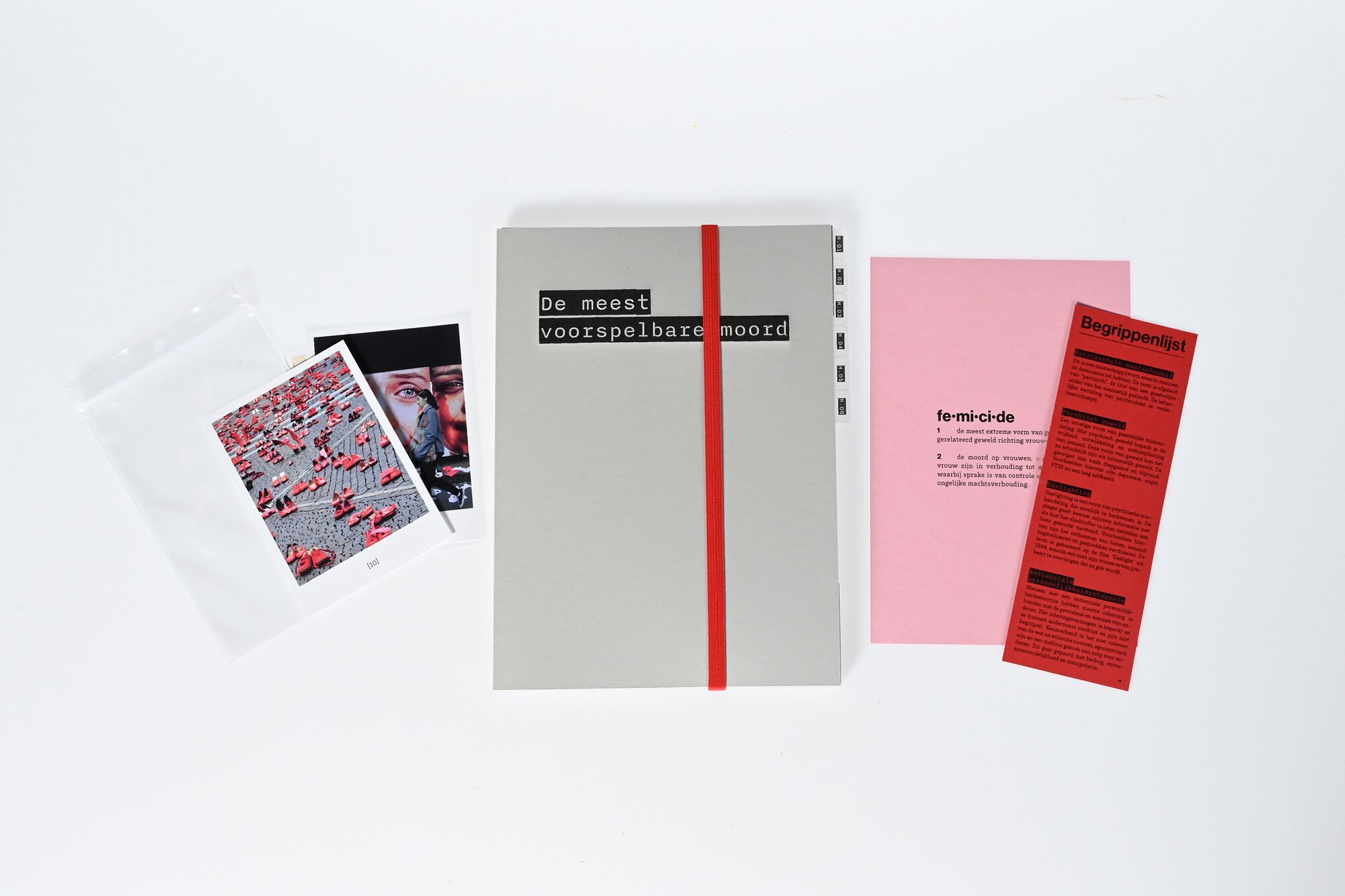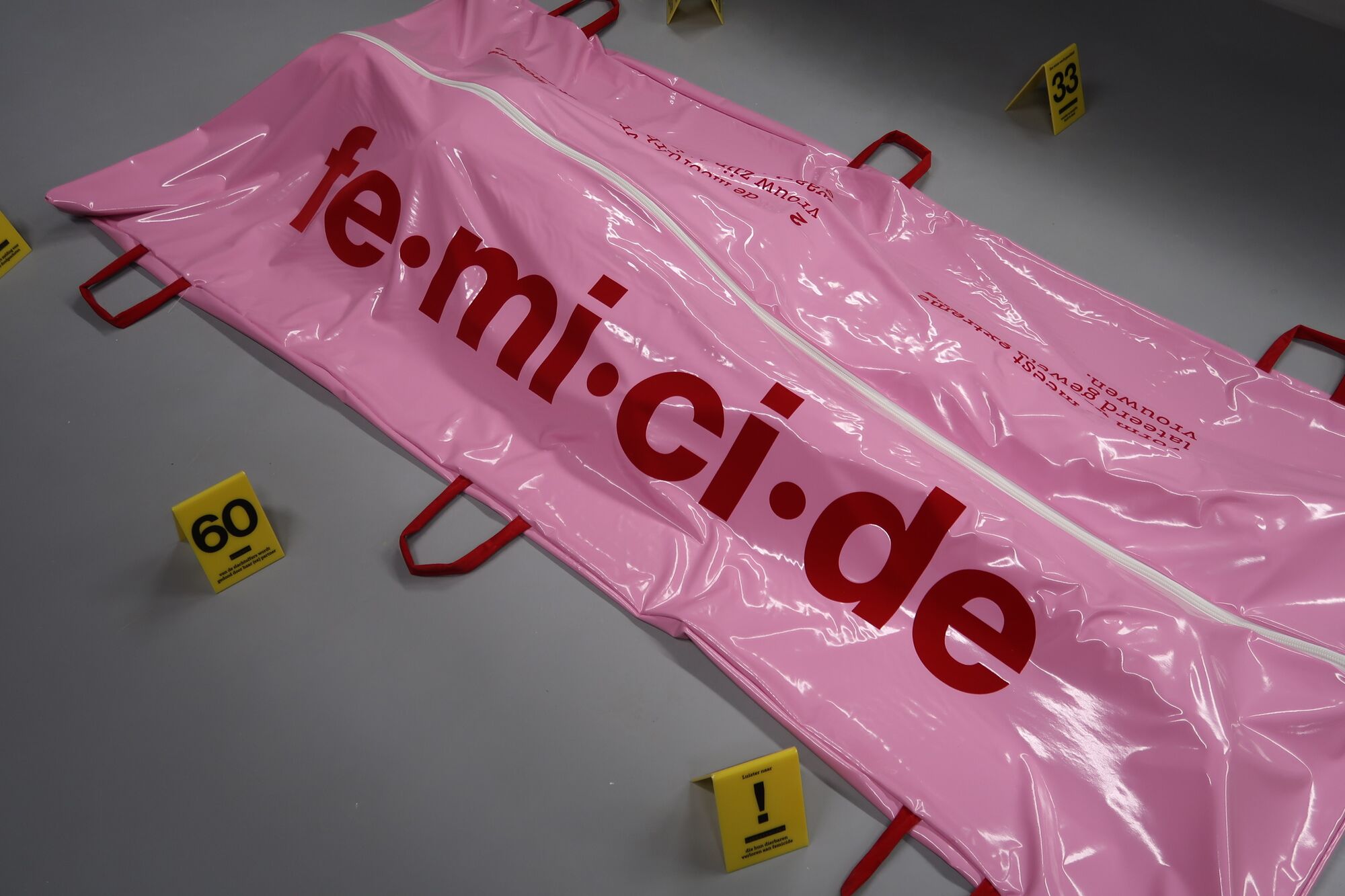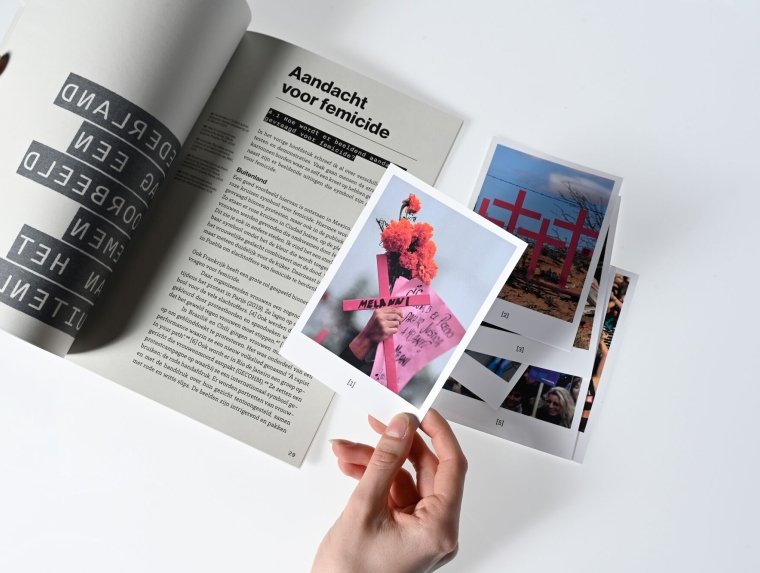"Femicide is the international term for lethal gender-based violence against women", Rachelle explains. "In the Netherlands, this type of murder is often dismissed as a 'crime of passion' or a 'relationship drama'. Such neutral terms do not do justice to the seriousness of these crimes." With her thesis, she wants to start a conversation about the issue and make people aware of the need to take femicide seriously.
The most predictable murder
In her thesis, entitled 'The most predictable murder', Rachelle studied the phenomenon of femicide in the Netherlands. "We often point to other countries as if it is their problem, but in the Netherlands a woman is murdered every eight days. It is a social problem that deserves much more attention", she says. During her research, she discovered that the Netherlands is lagging behind in tackling femicide, while other countries pay much more (visual) attention to it.

Reading and writing about this issue has brought a lot of frustration, anger and, above all, misunderstanding. Rachelle: "Fortunately, I was able to turn this into motivation to continue writing and share this information with more people."
A crime scene
Rachelle's final project consists of a crime scene simulation that tells the story of femicide in the Netherlands. "I wanted to make something that touches people. A poster does not do justice to the gravity of the problem", she says. The installation combines confrontational images, shocking statistics and audio clips to make the seriousness of femicide tangible. "My goal is for people to realise that femicide is a serious social problem in the Netherlands too."

Social relavance
Her work is a good example of how the Graphic Design course provides space for socially relevant projects. Topics with meanings are important in the bachelor's course. With Rachelle's thesis, she hopes to contribute to recognising and defining femicide in the Netherlands. "My mission is to make sure we name and acknowledge the problem. That is the first step towards lowering the figures", she concludes.
Do you need help after violence or threats at home, by your partner or a loved one? Or do you know someone with whom this is happening? In the event of immediate danger, call 112. Call Veilig Thuis for advice or help via 0800-2000 (free and can be done anonymously).
More information about the bachelor's course
Follow Rachelle
Visit her website



